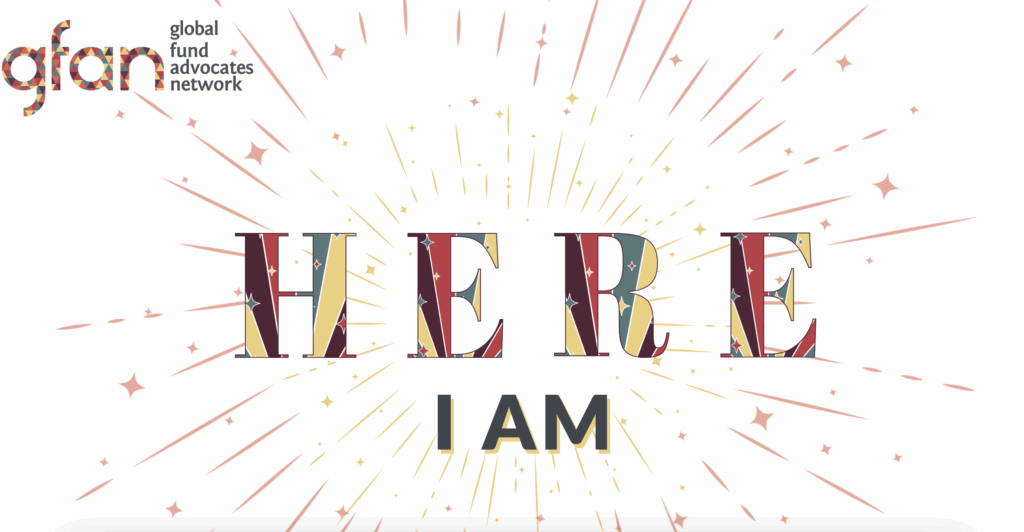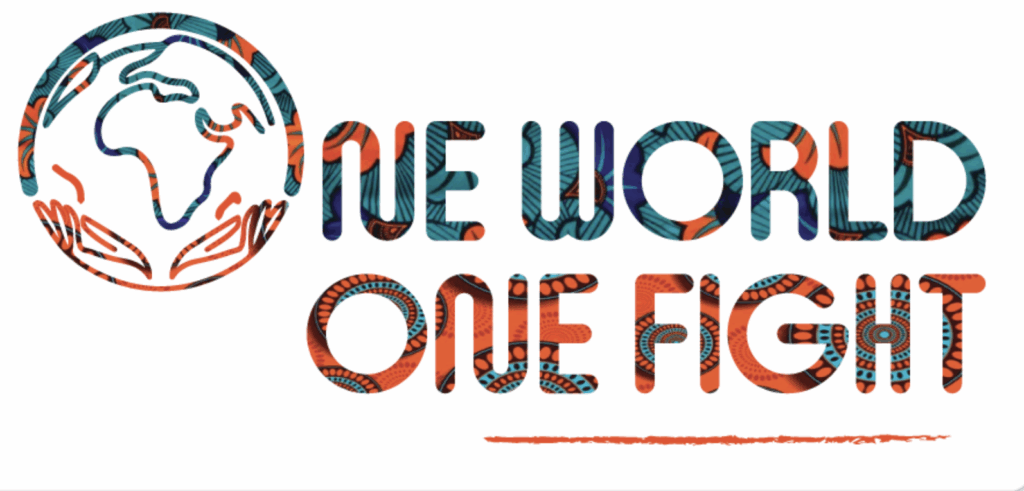A Toolkit to Navigate Gender-Transformative Investments through Global Fund’s 8th Replenishment
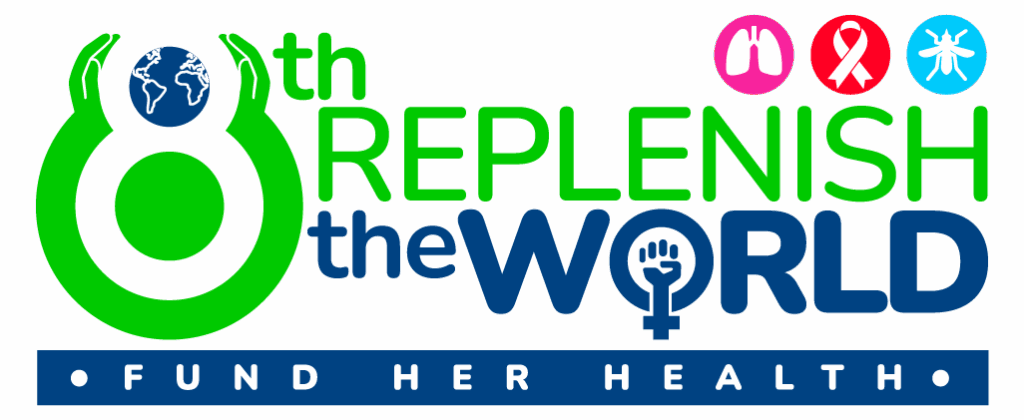
This W4GF 8th Replenishment Toolkit is for women and gender equality champions who engaged in the funding request process and advocated for specific human rights-based programmes and services for women and girls. Our aim is to support W4GF Advocates in the midst of the Global Fund’s 8th Replenishment to ensure women and girls in all their diversity are at the centre of health responses. It enables W4GF Advocates to remain engaged in the implementation and monitor that the funds they advocate for are reaching the right communities and benefitting women and AGYW.
As Feminists we get involved in Global Fund’s 8th Replenishment
Today, we are once again facing a generalized health crisis. Hard-won progress toward ending the world’s deadliest epidemics—HIV, tuberculosis, and malaria—is at risk of unraveling. These diseases remain concentrated in the poorest countries and among the most marginalized populations, making them stark indicators of deepening global inequality.
The international community has long recognized that health is not a privilege but a human right and a foundation for development. From the Alma-Ata and Astana Declarations on Primary Health Care to the Sustainable Development Goals (SDG 3 on health, but also SDGs on gender equality, poverty, and inequality), governments have committed to invest in public health as a pathway to dignity, equity, and justice. The COVID-19 pandemic confirmed this truth: when health systems are weak, everyone is vulnerable.
Investing in health is not a cost—it is one of the smartest economic choices we can make. The World Health Organization and World Bank have shown that every dollar invested in health yields significant returns in productivity, social stability, and economic growth. Healthy communities are more resilient, more capable of responding to crises, and better able to build inclusive and sustainable futures.
Yet the political dimension cannot be ignored: women and girls are the ones holding societies together in the face of collapsing health systems. They are caregivers in families, overrepresented in frontline health work, and at the same time among those most affected by lack of access to care. When health systems fail, it is women and girls who pay with their bodies, their time, and too often, their lives.
We see this reality across our regions:
- In Morocco, women and girls protest preventable maternal deaths in hospitals, exposing how underinvestment puts women’s lives at risk every day.
- In Ecuador, underfunded hospitals and a surge in HIV and TB leave mothers, infants, and key populations unprotected.
- In Kenya, hospitals damaged during political unrest leave women giving birth and caring for relatives with no safe refuge.
- In Myanmar, women health workers are arrested and attacked, while women patients are forced to choose between care and personal safety.
- And in Ukraine, war has shattered health services—maternity wards bombed, women displaced without access to reproductive care, and sexual violence used as a weapon of war.
Across all these contexts, the pattern is the same: when systems break down, women and girls sustain life in impossible conditions. They are the ones who make life possible, who hold families and communities together, even as states and systems fail them.
This is why we fight—to preserve the Global Fund’s Gender Equality Strategy, to dismantle human rights barriers, and to ensure that communities themselves lead the response.
The 8th Replenishment of the Global Fund is not just a financial exercise—it is a political and moral choice. To invest in health is to invest in equality, in human rights, and in the possibility of a future where no one is left behind. We mobilize because the lives of women and girls matter, because public health must be protected as a global public good, and because justice demands action—now.
Major Donor Analysis: How to talk to donor countries, knowing their priorities and use of language.
Regional Analysis: Get to know what women and girls in their diversity priorities are and what are the needs of investment in each region
Advocacy Roadmap: Follow these steps and make sure you mark a difference
Communications materials



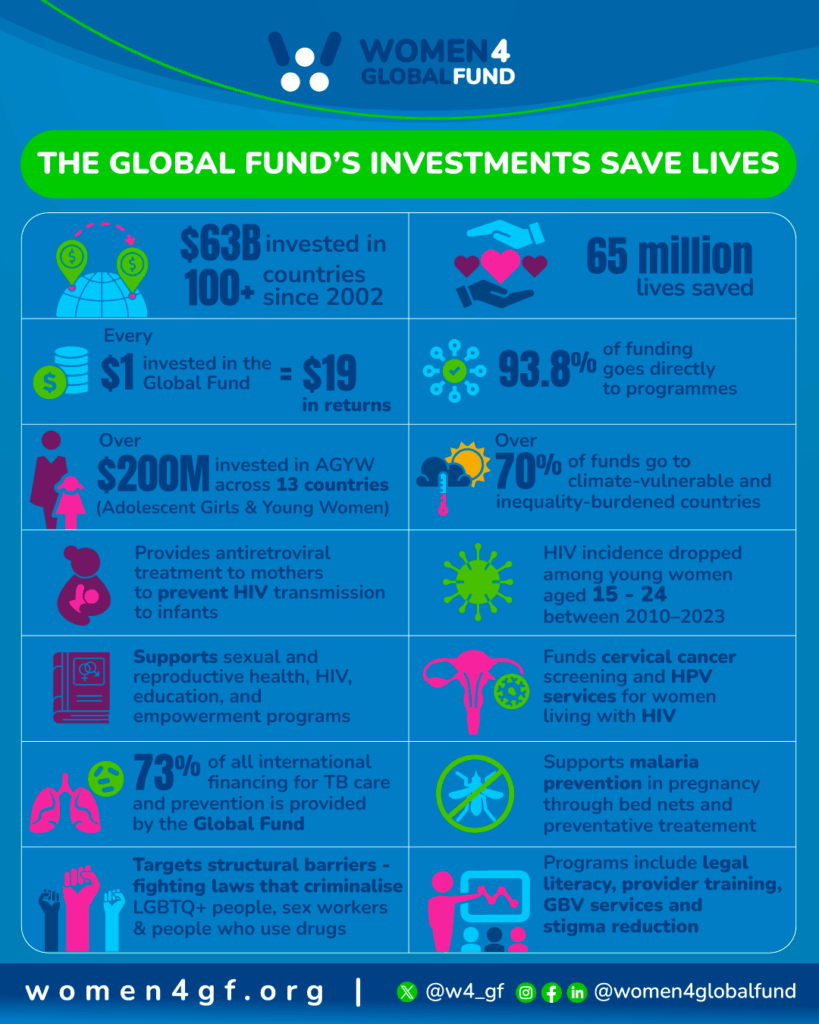
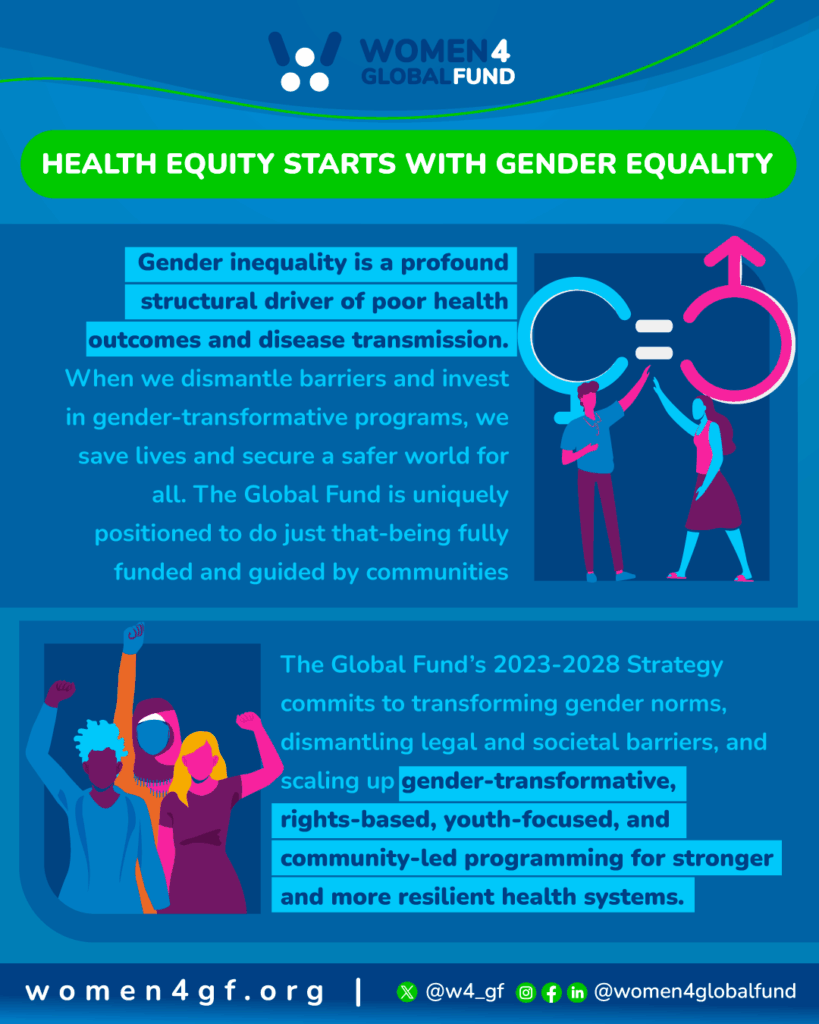
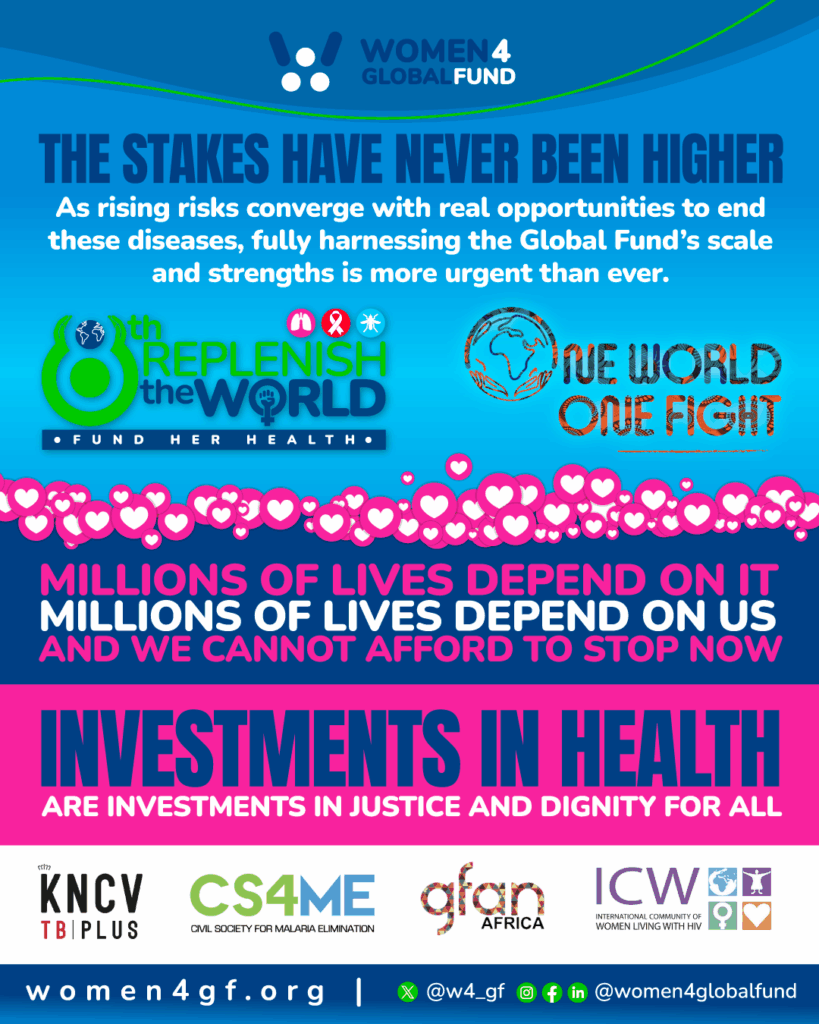
Key messages
- The time has come for the Global Fund’s 8th Replenishment. Millions of lives—especially women, girls, and gender-diverse communities—depend on it. We cannot stop now.
#FundHerHealth #8ForEquity #ReplenishTheWorld #8thReplenishment - With US$18 billion, the Global Fund can save 23 million lives and prevent 400 million new HIV, TB & malaria infections. These aren’t just numbers—they’re women accessing care, girls staying in school, and communities leading change.
#FundHerHealth #8ForEquity #ReplenishTheWorld #8thReplenishment - What makes the Global Fund unique? It funds what works: community-led, inclusive, feminist responses rooted in lived realities. That’s how lives are saved faster—and systems built stronger.
#FundHerHealth #8ForEquity #ReplenishTheWorld #8thReplenishment - Health equity starts with gender equality. Dismantling structural barriers and funding gender-transformative programmes saves lives—and transforms futures.
#FundHerHealth #8ForEquity #ReplenishTheWorld #8thReplenishment - The stakes have never been higher. Fully funding the Global Fund is not optional—it’s urgent. Invest in what matters most: women and girls in all of their diversity, communities, and justice.
#FundHerHealth #8ForEquity #ReplenishTheWorld #8thReplenishment - Replenish the World. Invest in gender equality, human rights, and community leadership. Together, we can defeat HIV, TB, and malaria—and build a healthier, more equitable future.
#FundHerHealth #8ForEquity #ReplenishTheWorld #8thReplenishment - HIV remains the leading cause of death among young women in sub-Saharan Africa. The Global Fund is a lifeline—full funding is non-negotiable.
- Since 2002, AIDS-related deaths have fallen by 74% in Global Fund-supported countries. Without full replenishment, decades of progress risk reversal.
- Global Fund investment has raised TB treatment coverage to 75%—its highest ever. Without full funding, this progress stalls.
- Women and girls face unique barriers in TB care. Gender-transformative investment is critical to ensure no one is left behind.
- Malaria continues to endanger pregnant women and children. The Global Fund finances 60% of the world’s malaria programmes—this is life-saving. We must invest in communities where it matters most to continue advancing in gender transforming malaria programmes.
- Community-led malaria interventions—many run by women—have proven the most effective way to reach those at risk.
- Health crises are not accidents—they are the direct result of chronic underinvestment. Women and girls carry the heaviest burden, paying with their bodies, their time, and too often, their lives. #FundHerHealth #8ForEquity #ReplenishTheWorld #8thReplenishment
- Every dollar invested in health brings back multiple returns in productivity, resilience, and stability. Investing in health is not a cost—it’s the smartest economic choice. #FundHerHealth #8ForEquity #ReplenishTheWorld #8thReplenishment
- From Morocco to Myanmar, from Ecuador to Ukraine, collapsing health systems expose the same truth: when systems fail, women and girls are the first to suffer and the last to be heard. #FundHerHealth #8ForEquity #ReplenishTheWorld #8thReplenishment
- The Global Fund’s Gender Equality Strategy and human rights work are not optional—they are essential to saving lives. Communities must lead if we want to end HIV, TB, and malaria. #FundHerHealth #8ForEquity #ReplenishTheWorld #8thReplenishment
- The 8th Replenishment is not just about financing—it is a political and moral choice. To invest in health is to invest in equality, rights, and justice. #FundHerHealth #8ForEquity #ReplenishTheWorld #8thReplenishment
- We mobilize because the lives of women and girls matter. Public health is a global public good—and justice demands action now. #FundHerHealth #8ForEquity #ReplenishTheWorld #8thReplenishment
- Community-led responses work. The Global Fund has proven that those closest to the challenges deliver the strongest solutions.
- The Global Fund is unique in investing in communities, not just systems. That is why full replenishment matters.
- FGS is a neglected disease that leaves millions of women and girls at risk of infertility, stigma, and heightened HIV vulnerability. A fully funded 8th Replenishment ensures integration of FGS into HIV and SRHR programmes, closing a deadly gap in care.
- Without investment, women and girls will remain invisible in health data and excluded from treatment. Full funding guarantees research, diagnosis, and community-led solutions that centre women’s realities.
- Rights-based, gender-transformative SRHR programmes save lives — from HIV prevention for adolescent girls to maternal health. With a fully funded 8R, the Global Fund can expand integrated SRHR and HIV services, especially in contexts where women face the highest risks.
- Underfunding SRHR widens health inequalities. The 8th Replenishment is the chance to guarantee access to contraception, prevention tools, and stigma-free care for women and girls in all their diversity.
- Climate shocks spread malaria, worsen TB vulnerabilities, and deepen HIV inequalities. Women and girls in climate-vulnerable regions carry the heaviest burden. Over 70% of Global Fund investments already go to climate-vulnerable countries. A fully funded 8R is essential to sustain this lifeline.
- Without urgent investment, climate and health crises will collide — pushing women, girls, and communities further from care. Full replenishment builds resilient, feminist health systems that protect against both pandemics and climate shocks.
- The Global Fund delivers direct progress on SDG 3 (Health), SDG 5 (Gender Equality), and SDG 10 (Reduced Inequalities). A fully funded 8R ensures that every dollar returns US$19 in health and economic gains, accelerating SDG achievement.
- The SDGs cannot be met without gender equality. A fully funded @GlobalFund delivers SRHR, education & community-led care — tackling the inequalities that fuel HIV, TB & malaria.
Communications Campaigns from Partners
